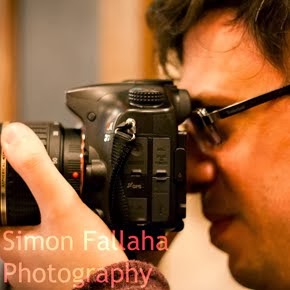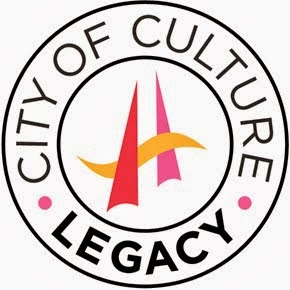The Belfast-born author and playwright chats about her latest novel in front of an expectant Derry audience
The novel – rather racy stuff, if you hear the extract Caldwell reads – is told from the viewpoint of Jane’s daughter, Lara. She's struggling to write her memoir, and believes that visualising the scenario from inside her mother’s head will help her to understand the way her parents work. It's like, as Muir puts it, having a discussion with yourself on how you became a writer.
The book will soon be read on BBC Radio 4's Book At Bedtime by Mrs. James McAvoy herself, Anne-Marie Duff, and it has also been chosen for the One City, One Book initiative later this year; it will be the reading material for the cities of Derry and Belfast during the month of May.
A delighted Caldwell proclaims her pleasure at being able to perform her first public reading of the novel in Cafe Blooms, the "best location in the city" in her eyes, before she reads her extract to us. It's an interesting section, one that gives us the idea of living through the narrator and finding out where the passionate affair materialised. But what an idea – how can a man and a woman have two different families, and never the twain shall meet?
"It all started with a dream I had several years ago", Caldwell says. "In my dream, a doctor was living a double life. And at the time, I was researching my second novel which was set in Bahrain, and wasn't looking for a new idea at all. But the 'double life' stayed with me, and I found myself looking for similar stories in newspapers and magazines. I found so many examples. Recently I met a journalist who told me her uncle's next-door neighbour had had a boy and a girl with two families, and had even called them the same names so he wouldn't get them confused!"
The lack of moral-finger pointing in the book is striking. While one would think that "having two families on the go" is extremely wrong and morally reprehensible, there's no morality in the story as such. It's just a case of both wife and mistress wanting to have a good life, and one never feels like blaming the father.
Caldwell realises that moralising things in the book would have been "too easy" and believed, when writing the book, that fiction could underline the need to understand. She took much inspiration from Nathaniel Kahn’s documentary "My Architect", where Kahn set out to understand his own father once he grew up and his father had died.
"The film is not made with a shred of recrimination or bitterness, just to need to really, truly understand a situation, a situation which Jane never sets herself up to be in to begin with. She can't make friends and cuts herself off from her disapproving parents. No one likes to find themselves in such a state of affairs, but through decision-making you can end up so far from the person you thought you'd be, or thought you were. My book sets out to explore this."
It gets deeper too, with Jane reaching the end of her tether after becoming pregnant for a second time and going to confront Patrick’s wife in Belfast. And it's here where Lara’s memoir collapses; she doesn't remember much, but she remembers that her mother was pregnant and that Patrick hasn’t admitted his own wife's pregnancy. Will Lara be able to understand why her mother stayed with Patrick for so long and why she did what she did? That appears to be the mystery of All The Beggars Riding, in addition to whether this plastic surgeon, one who continuously fixes people's faces, cannot fix his own life.
While also a playwright, Caldwell seems particularly happy to have conceived this idea as a novel: "I think a novel, any novel, is the best way of conveying imagination, reflectivity and consciousness. Radio's a very imaginative medium too because you can be really wide-ranging with it; it always feels like the voice inside your head. With theatre, it's really hard, because it's more about what the characters are doing rather than what they are saying. The key, for me, is to always be in control of the medium you’re working in."
Despite currently being based in London, Caldwell remains very true to her roots. She's done all her radio work with Heather Lorimer at BBC NI, and has always tried to get her plays premieres in Belfast.
Going on to discuss her writing in general, Caldwell recalls just how much writers can learn from fellow literary minded people: "People thought I was telling my life story in my first novel, Where They Were Missed, which was set between Belfast and Donegal. So for my second novel, The Meeting Point, I wanted to do something bigger, bolder and more imaginative.
"Three years later I found myself struggling with a 100,000 word draft. I had a sinking feeling it was going nowhere, and one of my readers, a freelance editor, felt the same way. So I tried to get a job, and realised I didn't know what to do! I didn’t even have a CV. It was then when I heard Indian author Kiran Desai had also been at her wits' end when writing her second novel, but she managed to pull herself together and write it. Her inspiring, self-depreciating wisdom gave me the spark I needed to complete the novel."
 It all ties in with a line from Chekhov's The Seagull, one that Caldwell thinks of a lot: "The most important thing is the ability to endure, and keep on enduring." Such wise words have kept her going throughout a profession that seems to have more than its fair share of peaks and troughs.
It all ties in with a line from Chekhov's The Seagull, one that Caldwell thinks of a lot: "The most important thing is the ability to endure, and keep on enduring." Such wise words have kept her going throughout a profession that seems to have more than its fair share of peaks and troughs."When a book isn't working, or if I'm struggling to keep going, I always remind myself that there are levels of having a bad day or a difficult job. Enduring a disappointing review or a negative comment is nothing compared to listening to people and hearing their stories. While I was researching The Meeting Point in Bahrain and Iraq, I had the incredible privilege of meeting numerous novelists and poets. It's all about balancing the highs and lows."
For all the highs, however, it will be a while before Caldwell has the stamina to write her next novel, considering the amount of work, travel and "emotional complexities" that are likely to come with it. Although if anyone was to approach her about film rights for All The Beggars Riding, "it'd be great!"
For more about Lucy Caldwell, and All The Beggars Riding, check out her official website at www.lucycaldwell.com.















0 comments:
Post a Comment